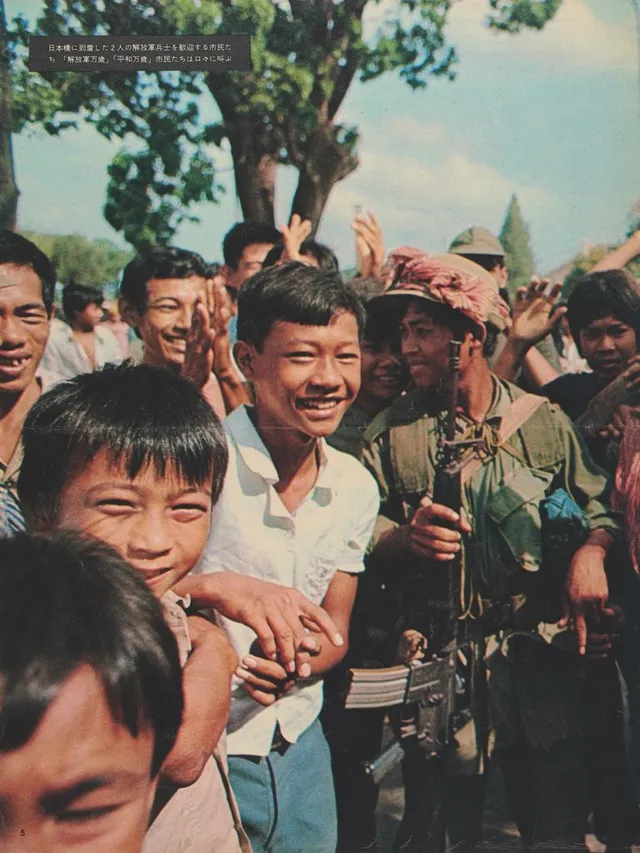
These striking images by Japanese photographer Naoki Mabuchi show how the fall of Phnom Penh unfolded in the hours and days after the victorious entry of the first Khmer Rouge soldiers to the city on the morning of April 17th, 1975.
Not only was Mabuchi one of the few foreign journalists on the streets of Phnom Penh to witness this momentous event, but he spoke Khmer (the Cambodian language), had a Cambodian wife, and was naturally sympathetic to the arrival of the Khmer Rouge soldiers. He saw their victory as a liberation for the Cambodian people after they had endured nearly five years of war and suffering.
His images paint an extraordinary picture of the joy with which the city's population, defeated soldiers, and monks greeted the victors. He was perhaps unique among the foreign journalists in Phnom Penh in being able to establish friendly relations with the Khmer Rouge soldiers he met. He got them to pose for photos and even rode on the top of a Khmer Rouge jeep with them taking photographs.
Later, in common with other foreign journalists, he moved to the Frenchthe French embassy Embassy which the Khmer Rouge had declared an assembly point for all foreigners pending their eventual evacuation by truck overland to Thailand.
Mabuchi's photographs capture some of the high and low points of daily life inside the embassy, contrasting how conditions for the foreign journalists were more favorable than for the Cambodian civilians also sheltering there. He photographed a Scottish Red Cross medical team vainly operating on a severely wounded Cambodian soldier lying on a dining table. After he died, the soldier was buried in the embassy grounds. Mabuchi also photographed an American expatriate cooking for the journalists while ignoring the pleas of hungry Cambodian children to share the food with them. His apparent sympathies for the Khmer Rouge led to him being treated with suspicion by some members of the foreign press.
All this the while, outside the embassy, the Khmer Rouge forces were forcing Phnom Penh's two
million population at gunpoint to leave the city and head out into the countryside, a death sentence for many.